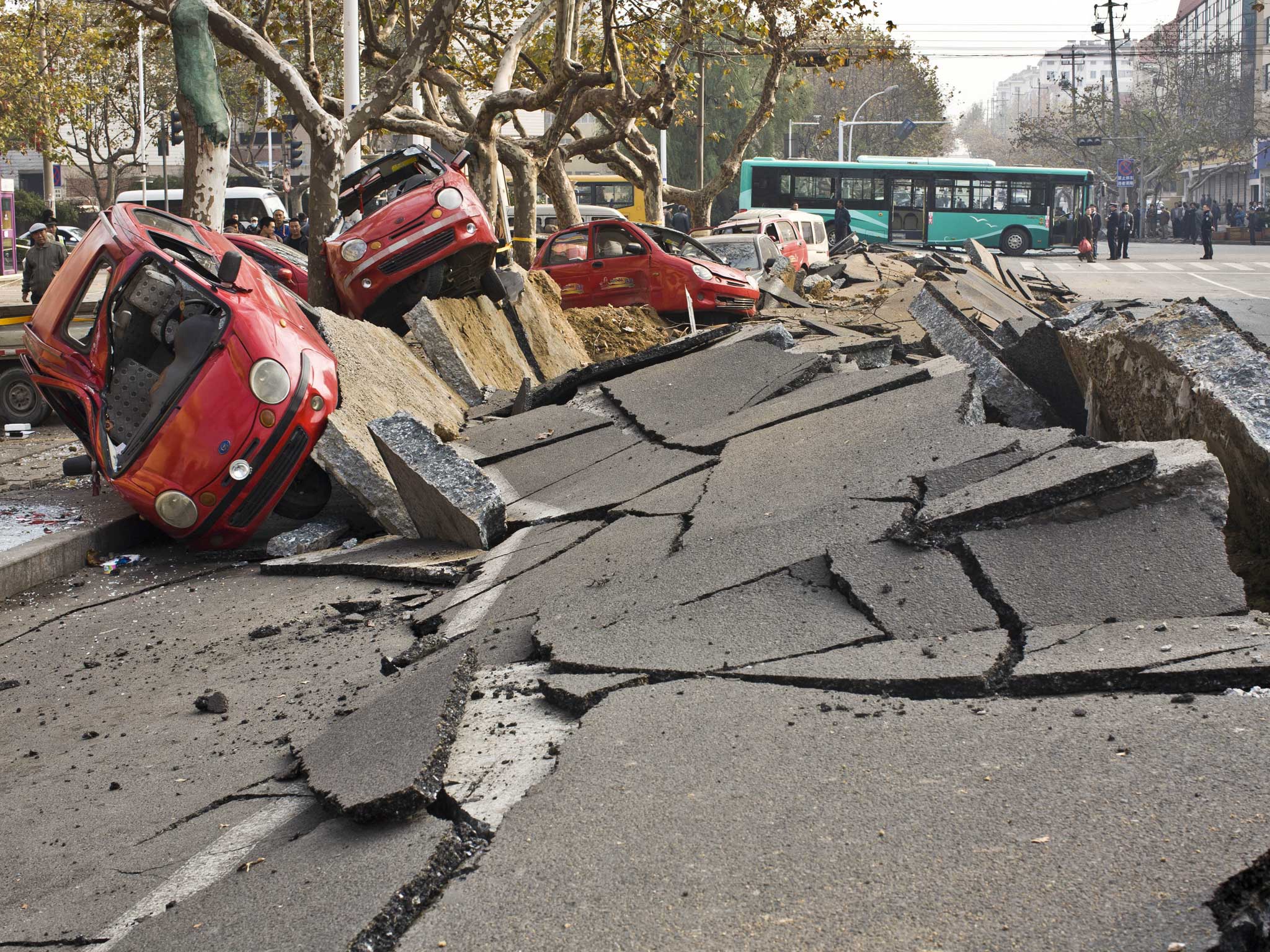China company Sinopec 'sorry' for Qingdao oil pipeline blasts that kills 47

Your support helps us to tell the story
From reproductive rights to climate change to Big Tech, The Independent is on the ground when the story is developing. Whether it's investigating the financials of Elon Musk's pro-Trump PAC or producing our latest documentary, 'The A Word', which shines a light on the American women fighting for reproductive rights, we know how important it is to parse out the facts from the messaging.
At such a critical moment in US history, we need reporters on the ground. Your donation allows us to keep sending journalists to speak to both sides of the story.
The Independent is trusted by Americans across the entire political spectrum. And unlike many other quality news outlets, we choose not to lock Americans out of our reporting and analysis with paywalls. We believe quality journalism should be available to everyone, paid for by those who can afford it.
Your support makes all the difference.China's largest oil refiner Sinopec has apologised for explosions from a ruptured oil pipeline that killed 47 people and injured 136 others in one of the country's worst industrial accidents this year.
Sinopec's expansion of petrochemical projects has met with resistance from members of the public, and Friday's blasts in the eastern port city of Qingdao will likely add to growing concern about safety and environmental risks. The accident was the deadliest involving Sinopec.
The explosions ripped slabs of pavement and online photos showed bodies, overturned vehicles and shattered windows in nearby buildings. Black smoke rose above gigantic fuel silos and darkened much of the sky over a bay area.
The pipeline, owned by Sinopec, ruptured and leaked for about 15 minutes onto a street and into the sea before it was shut off. Hours later, as workers cleaned up the spill, the oil caught fire and exploded in two locations, the city government said.
Fu Chengyu, chairman of Sinopec, issued a public apology Saturday morning, according to a company statement. He said that Sinopec will collaborate with a State Council investigation group.
"We will investigate the incident with responsibility and give timely reports," another Sinopec statement said.
The Qingdao Environmental Protection Bureau said barriers had been set up to contain the oil as it spread into the sea, but that a mixture of gas and oil from a storm sewer exploded and caught fire over the sea.
More than 3,000 square metres of sea surface was contaminated, the city government said.
Authorities said the oil had seeped into underground utility pipes, which could have been a factor in the blasts, but they did not elaborate. They assured the public that the explosions did not affect any petrochemical plant or military facilities in the seaside district and that air quality remained good after the disaster.
About 18,000 residents have been evacuated in the wake of the blasts, and power was restored to all except two residential neighborhoods, authorities said.
Of the 136 people hospitalized, 10 remained in critical condition, the city government said.
The Beijing News cited a resident surnamed Gao, who works in logistics, as saying he was driving past Qingdao's Huangdao district when he felt the force of the blasts, and then realized the ground in front of him had fractured. The air was pungent, many cars on both sides of the road were overturned and there was dark smoke rising in the distance, he said.
"It felt like an earthquake, and I was dumbstruck," Gao said, adding that there was chaos on the street as people ran, panicking, in all directions.
Authorities ruled out terrorism but the incident remained under investigation, it said.
President Xi Jinping urged local officials to go all out in finding missing people, treating the injured and finding the cause of the accident, state TV broadcaster CCTV said.
It was China's second deadliest industrial accident this year, behind a chicken factory fire in June in Jilin that killed 121.
AP
Join our commenting forum
Join thought-provoking conversations, follow other Independent readers and see their replies
Comments